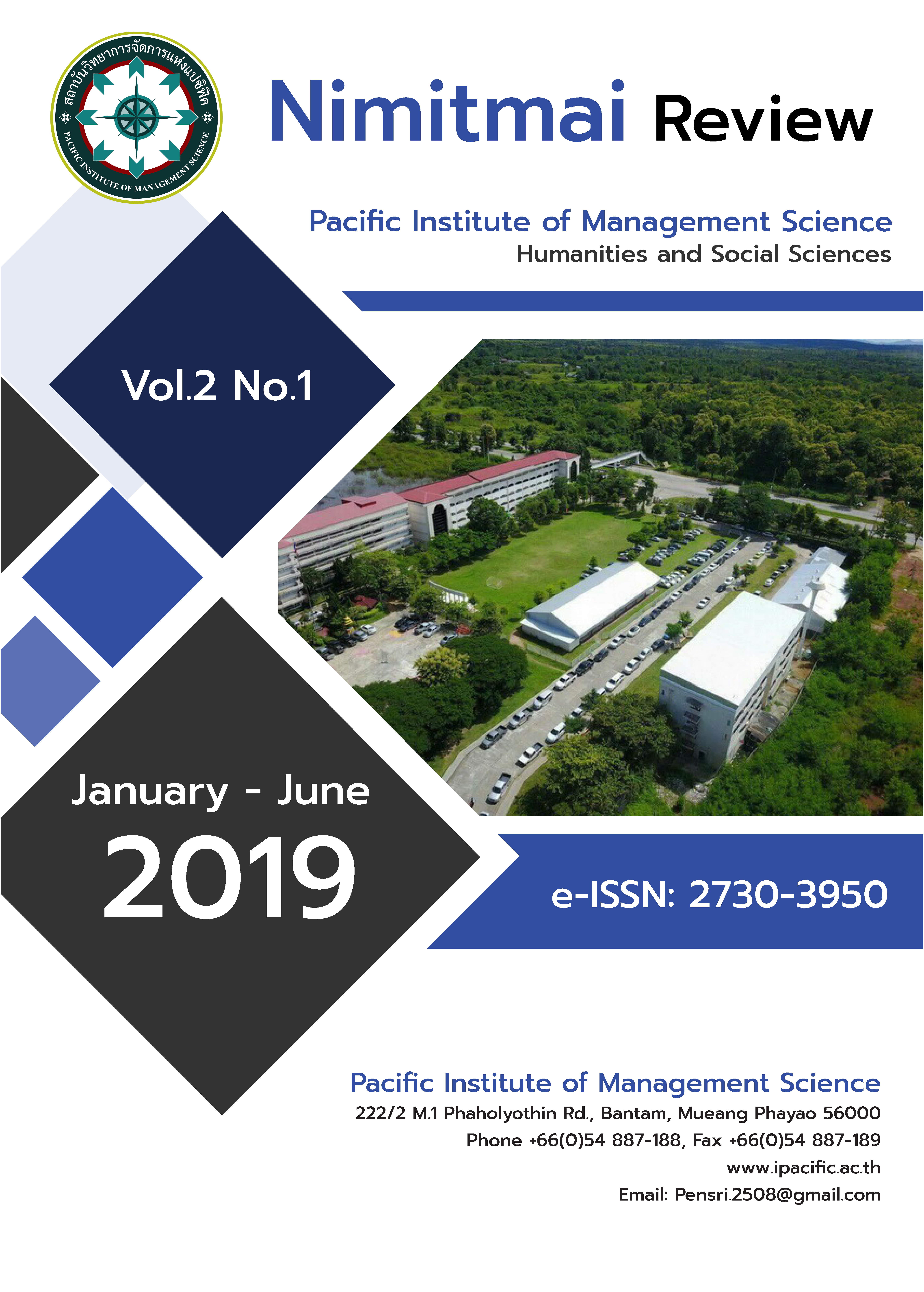Thai Student’s Socioeconomic Status and English Language Learning: A Critical Study
Keywords:
Socioeconomic Status, English Learning, Thai Undergraduate StudentsAbstract
and English language learning of Thai undergraduate students in a state university in the northeastern region. A total of 14 participants were selected from the regular and international programs. The data was collected by in-class observations and semi-structured interviews; theoretical frameworks were used as a lens to analyze the data and explain the findings of the study which shows that socioeconomic status (SES) correlates with identity and English language learning. However, some cases demonstrate conflicting results due to other factors that affect the learners themselves and their English learning.
References
Considin, G., & Zappalà, G. (2002). The influence of social and economic disadvantage in the academic performance of school students in Australia. Journal of Sociology, 38(2), 129-148.
Gao, F. (2010). Negotiation of Chinese learners’ social class identities in their English language learning journeys in Britain. Journal of Cambridge Studies, 5(2-3), 64-77. Gee, J. P. (1999). An introduction to discourse analysis: Theory and method. London: Routledge.
Gee, J. P. (2011). How to do discourse analysis: A toolkit. New York: Routledge.
Lapthananon, P. (1995). The research report on socioeconomic status indicators in Thai society phrase II (in Thai). Chulalongkorn University: Social Research Institute. Memon, G. R., Joubish, F. M., & Khurram, A. M. (2010). Impact of parental socio-economic status on students’ educational achievements at secondary schools of District Malir, Karachi. Middle-East Journal of Scientific Research, 6, 678-687.
Mueller, C. W., & Parcel, T. L. (1981). Measures of socioeconomic status: alternatives and recommendations. Child Development, 52(1), 13-30.
Norton, B. (1997). Language, identity, and the ownership of English. TESOL Quarterly, 31(3), 409-429.
Norton, B. (2000). Identity and Language Learning: Gender, Ethnicity And Educational Change. Essex, England: Longman.
Norton Peirce, B. (1995). Social identity, investment, and language learning. TESOL Quarterly, 29(1), 9-31.
Pavlenko, A., & Norton, B. (2007). Imagined communities, identity, and English language learning. In J. Cummins & C. Davison (eds.), International handbook of English language teaching (pp. 669–680). New York, NY: Springer.
Salameh, W. (2012). The Impact of Social and Economic Factors on Students’ English Language Performance in EFL Classrooms in Dubai Public Secondary Schools (Dissertation thesis). The British University in Dubai, Dubai.
Weedon, C. (1997). Feminist Practice and Poststructuralist Theory. London: Blackwell. Wenger, E. (1998). Communities of Practice: Learning, Meaning, and Identity. Cambridge, MA: Cambridge University Press.
West, C. (1992). A matter of life and death. October, 61 (summer), 20–3.



